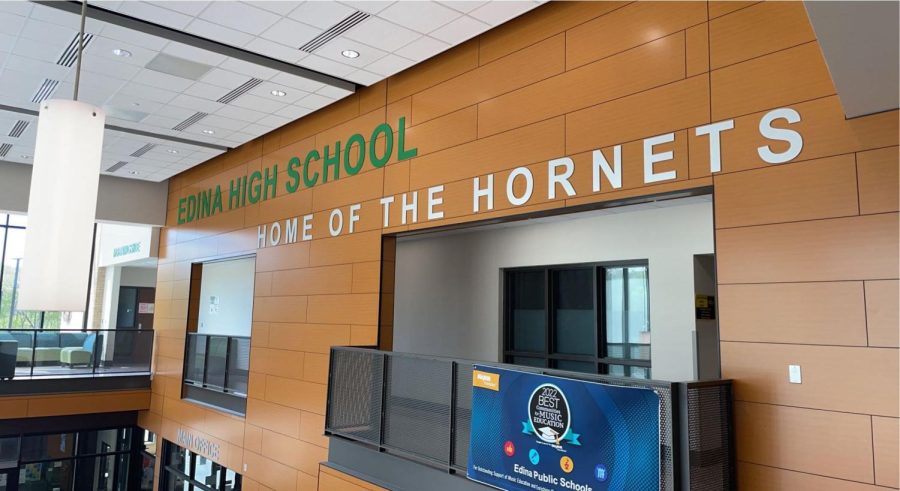The not-so-completely-comprehensive guide to student politics
May 17, 2022
Throughout high school, I’ve held positions in both district and in-school offices. Along with spending the last three years on the Student Senate, I’m also a member of the District Equity Advisory Committee and Dr. Stanley’s Superintendent Student Leadership Team. This combination of experience has left me with a few lessons in local bureaucracy and protocol that I’d be remiss if I didn’t leave behind as I graduate from Edina Public Schools; however, each student leader has a unique relationship and experience with district administrators.
- How to write an email. This one seems glaringly simple, but it’s important that you’re putting your best foot forward when introducing yourself over email or even talking to one of your teachers. Remember to include the platitudes, “I hope you’re doing well,” is typically my go-to. Another added bonus, “Thank you so much for your time!” slapped on the end before your signature is a great touch.
- Developing relationships. Your relationships with individuals are a key tool in accomplishing your goals. It’s important that these relationships, specifically with administrators and district officials, are maintained and not undermined. It can be easy to get caught up in the eagerness to pursue new student initiatives or projects, but you have to remember to first try to get through to your contacts. One easy way to undermine your current relationships is to go over someone’s head without first trying to get through to them. Often, these working relationships with higher level administrators will unlock opportunities for you. Personally, my go-to strategy for forging relationships with teachers and admin has been humor. That’s more of my individual style but it’s important that this humor is slowly built up and you don’t push it too far. You open yourself up to criticism and reprimand if you make a joke that crosses the line. You MUST be able to gauge that.
- Reading the room. There’s nothing worse than dropping a humorous remark at a time when it’s wildly inappropriate. Recognize when it’s appropriate to be serious and also when a little humor is okay. Know your audience and go from there.
- Respect the high school and district staff. Just because you might be Vice President of EHS Club #4050867 doesn’t mean you have the right to act like EHS teachers owe you anything. If you want something from them, you ask; don’t email them expecting the answer to be a yes and especially don’t convey that tone via your request or communication. This can also look like simple manners. Push in your chair when you get up from your desk and remember to clean up your spaces as you move from flex space to flex space.
- Problems are not always as simple as students vs. teachers. For every gripe a student might have with a teacher or subject, there is almost always an explanation as to why something is the way it is. Typically, problems facing students trickle down from higher level deficiencies; the lack of district-level support to administrators may stretch them thin and leave them unable to provide resources to teachers.
- Sustainability and student project longevity is difficult. This one is more an extrapolation beyond my view, but based on what I’ve seen it makes sense. While administrators and district officials are planted in Edina, the nature of an Edina student is to be continuously cycled in and out. At most we have four years to leave our mark, but much of that is spent acquiring the skills we need to accomplish what we want. We either spend our time making strides towards our goals or training younger students in the skills you’ve picked up, in hopes of your work continuing. At the end of the day though, all work students do is secondary to their academics and are subject to be put on the backburner.
- Student bureaucracy is expansive and tedious. Different student groups will be working on the same issue, but will have little success because ideas aren’t shared or they don’t work in conjunction. Even more, there’s the barrier of accessing administrators. Organizations have to not only battle the bridge to connect with each other, but also the administrators capable of implementing their changes. Ultimately, thorough communication between these groups is key.
- Student leadership is not about being the loudest person in the room, but rather giving agency and a platform to those who don’t have it. If you have a formal leadership role in an EHS organization, then you already possess power. Supposedly, you’ve already put in the work to prove that you’re worthy of your position. Now that your role is formalized, do not continue as you had before. Instead of advocating your own perspective, help facilitate conversations with students who may not be in formal positions of power.
This list encompasses a lot of skills, but it’s in no way comprehensive. Each student’s personal experience depends on their personal style and skill set. Ultimately, operating within student bureaucracy will end up serving you in valuable ways.


